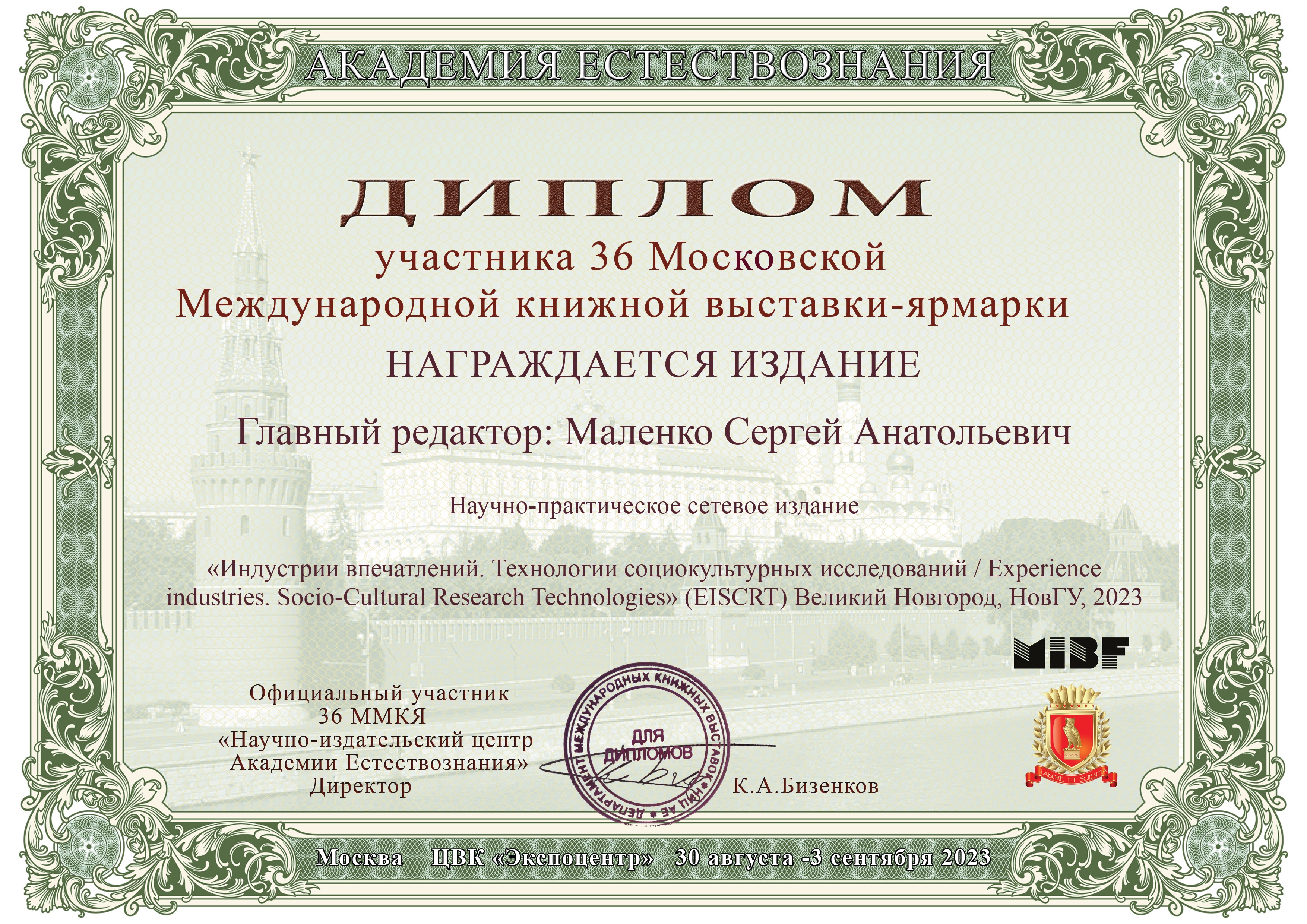METAMORPHOSES OF ELECTRONIC NOMAD GAMES: FROM A BANAL SHOW TO AN EXISTENTIAL DRAMA
DOI:
https://doi.org/10.34680/EISCRT-2025-2(11)-241-280Keywords:
electronic nomad, messenger, social network, existential performance, existence, design, image, intention to transcendence, digital burnout, ontological insufficiencyAbstract
The object of the study is an electronic nomad who creates and posts elements of their own existential spectacle on messenger channels and social media pages. It is formed on the basis of episodes recorded through mobile devices from the nomad's life, both real and possible. In such an existential play, the electronic nomad performs several roles simultaneously, acting as a playwright, director and actor. A certain part of the episodes turns out to be staged, imagined and/or desired, but did not happen in reality. The design helps to make images and information look as attractive as possible, allowing them to process their textual, visual, graphic and audio components. The nomad positions his image in the play as a reference, while at the same time giving expert assessment or mentoring recommendations on current social issues. The nomad deliberately makes the existential play available to a large audience of subscribers, seducing them with private publicity, but at the same time showing the "will to power." In the existential performance of the electronic nomad, certain risks are revealed that do not allow him to realize existence and intention towards transcendence. As a result, the nomad does not understand himself, and his existential performance in messengers and social networks turns into a personal drama.








